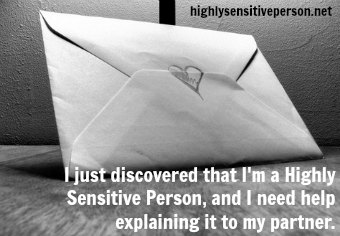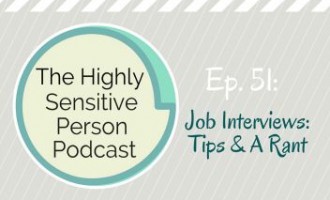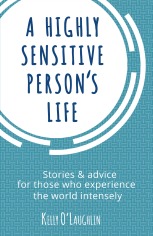 We’ve all heard about anger management-what about anxiety management?
We’ve all heard about anger management-what about anxiety management?
Now, not every highly sensitive person struggles with anxiety, but many of us do.
Anger management teaches people how to understand and acknowledge their feelings and anger. Us anxious folks can teach ourselves to acknowledge when we are starting to go down the rabbit hole of anxiety and worry.
When people feel anxiety coming on, they often rack their brains to find reasons for the symptoms in hopes that they can figure it out and “solve” it. But, often, the source of your heightened emotions isn’t real, so your brain goes in a circle of worry, trying to find the source of the worry, when there isn’t one.
There have been times I’ve tried to explain my anxiety to my husband, and he’s said, “Let me get this straight: you are worrying about worrying?” And I can’t help but laugh, because he’s right.
So, how to manage your anxiety?
When you feel the panic coming on, try to ignore it. Realize what is happening and don’t let it grab on to you. I know this is easier said than done. Once you decide to ignore it, then realize that you need to find a way to relax, immediately.
“This feeling of dread and tension comprises a state of low grade fear, which can also cause other physical symptoms…The feeling of dread is just the emotional manifestation of physical tension.” (source)
I tell myself something like, “Ok, my mind wants me to freak out right now, but I don’t want to let this happen because I hate the way it feels.” Then I focus on taking relaxing breaths and try to find something to distract myself. I will remove myself completely from the situation. If I feel the panic when I’m working on my computer, I’ll get up and walk away. Sometimes I will put on a mindless TV show. Or, I will tell my spouse, “I’m feeling anxious and starting to freak out. Please help.” And he will either help me take my mind off it or we’ll talk about what’s worrying me, and he’ll explain things though his non-anxiety addled brain. It helps a lot to have someone who understands.
This might sound ridiculous, but I remember one particular bad night. I was stressing big time about something. I sat down and watched a few episodes of the claymation kids’ show Shaun the Sheep. It is funny, clever, and most of all, innocent and sweet, and it always makes me smile.
What techniques do you use to manage your anxiety?

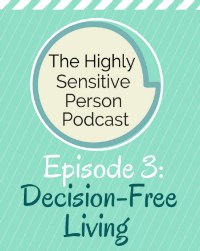
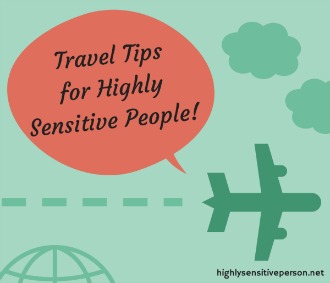 People who know me well are sometimes surprised that I travel as much as I do. My husband and I traveled/lived around the world for all of 2013, going to places like Mexico, Cuba, France, Hungary, Poland, Bosnia, Bali, Australia, Thailand, Cambodia, Hong Kong, and Japan on a budget. Prior to this trip, we’ve spent time in the Middle East and South America.
People who know me well are sometimes surprised that I travel as much as I do. My husband and I traveled/lived around the world for all of 2013, going to places like Mexico, Cuba, France, Hungary, Poland, Bosnia, Bali, Australia, Thailand, Cambodia, Hong Kong, and Japan on a budget. Prior to this trip, we’ve spent time in the Middle East and South America.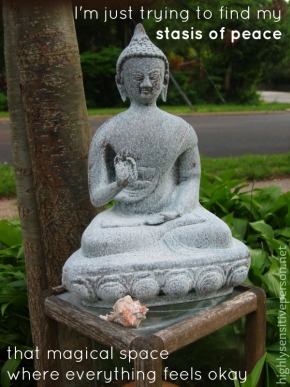 I’m learning every day how to better manage my needs as a person with high sensitivity and introversion. Like I always say, folks, it’s about acknowledging, accepting, and adjusting!
I’m learning every day how to better manage my needs as a person with high sensitivity and introversion. Like I always say, folks, it’s about acknowledging, accepting, and adjusting!

